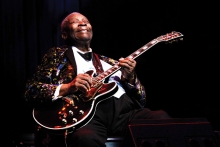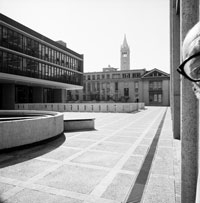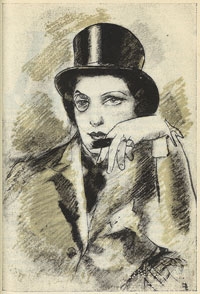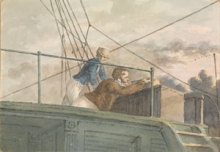Using the example of B.B. King’s soulful performance, Ken Ueno (Music) explores how audio recordings preserve and transmit aspects of music that classical notation fails to transmit.
Professor Andrew F. Jones investigates how the music of Bob Marley and the Wailers—at once impassioned and cool—transforms raw anger into historical awareness.
Professor Jacob P. Dalton describes how Tibetan practitioners of Dzogchen loosen engrained habits of seeing and learn to dream while awake.
Professor Catherine Cole argues that to picture the future in the expansive terms set forth in Ansel Adams' Fiat Lux project—to see it stretching forty, fifty, or one hundred years into the distance—is to perform an act that, while defying the logic of crisis and austerity, is nonetheless absolutely essential to sustaining the university as a public good.
Professor Michael Lucey explores French texts that call a strange sort of attention to sexualities or to aspects of sexuality that can’t exactly be referred to.
Professor Kevis Goodman discusses what interest the “uncertain disease” of nostalgia might hold for scholars today—especially, perhaps, humanities scholars, a group now at risk of receiving the unwelcome if not fatal diagnosis of nostalgia.





